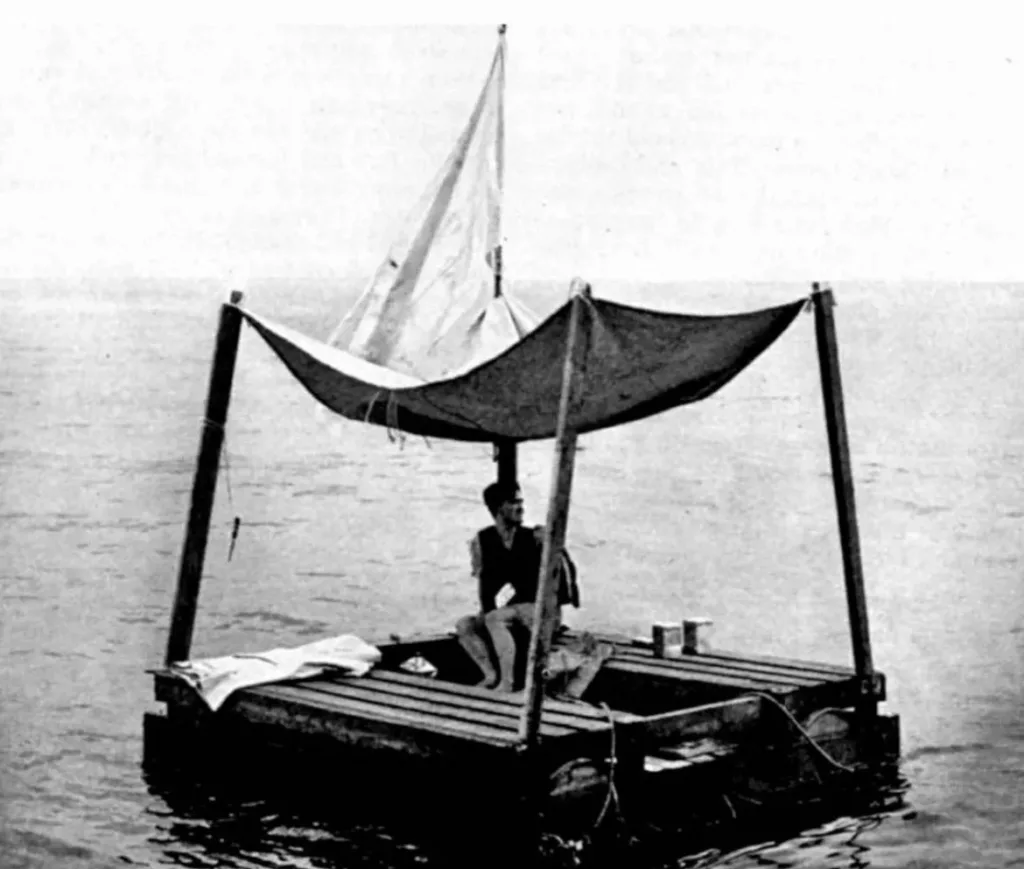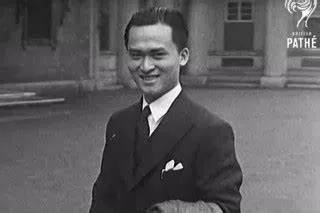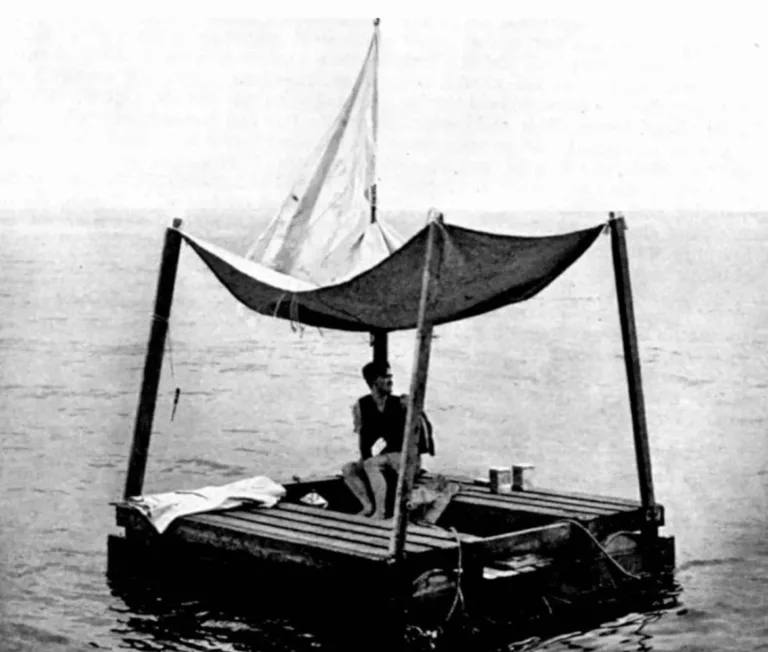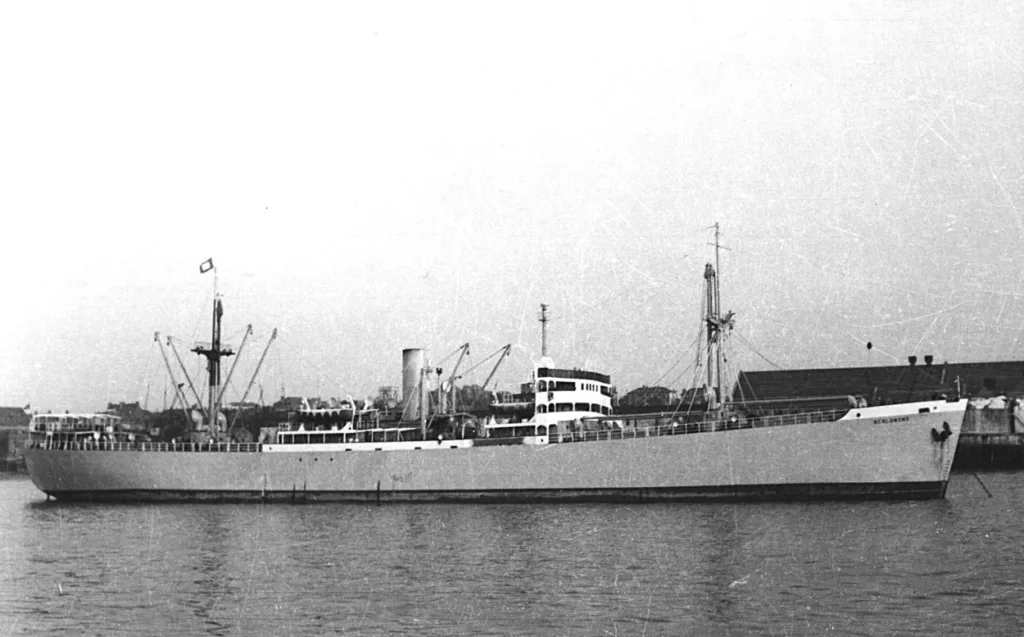The year is 1942 and WWII has left many nations in times of destruction and survival. As warfare ensues on the fronts of many countries, there is a small wooden raft in the middle of the Atlantic Ocean. Its only passenger is 25-year-old Poon Lim, a Chinese sailor who had been aboard a British Merchant Navy Ship.
Lim, a Chinese native, boarded the ship (the Benlomond) on November 10. His hope was to aid the British who had requested help from other nations. But, the real journey ahead was nothing he could’ve expected.
Poon Lim Drifts Away
To his satisfaction, Lim seized the opportunity to work with the crew of the British ship as a steward. They left from Cape Town with hopes of reaching Suriname, a country on the northeastern Atlantic coast of South America. Thirteen days into their voyage, a German U-boat made contact with the Benlomond. The ship had no chance of survival, and sank 1,200 kilometers east of the mouth of the Amazon river.
Lim had been thrown into the sea rather quickly and spent his next hours battling to stay afloat. After 2 hours, he finally saw his chance for rest. Lim spotted a raft and made his way over to it. Tired from his unexpected exertion and soaking wet, he finally pulled himself aboard the “Carley Float Life Raft.” He took in his surroundings and was pleased to find the raft was pretty well stocked. He thought to himself that this was more than enough to last him a short trip. He had no idea, he was on a path of solitude for 133 days and what lengths he would have to go to to survive.
Desperate Times Call for Desperate Measures
Poon spent his first days the same way I do on vacation. He ate, drank, and tanned with no cares in the world. After all, someone had to be coming to save him. In order to not lose track of time, he tied a knot in a rope signifying the days. He also tied a rope to both his wrist and raft, so he could ensure he would not be bucked from it within the night.
Days passed before he ran out of water. Poon had to come up with a solution quickly. Using both his rain jacket and a canopy, he was able to collect rainwater. His mentality began to change and he was seriously worried help was not coming. Lim even started counting full moons instead of knots.
The next challenge Poon would face was the hunger. Biscuits and sugar lumps aren’t exactly the diet my doctor tells me to follow, but they were able to sustain him for a while. When the supply went, he knew he needed to find a way to fish. With no weapons, he improvised. Lim was able to make a fishing line out of rope, nails from the raft, and a spring from a flashlight onboard to create hooks. His efforts were effective, and he was able to catch and then eat the raw fish. Not exactly my preference of sushi though.

Realizing his strength was vital for survival, Poon began to tread the ocean waves twice a day. He needed to maintain his muscle mass. Soon the small fish and rainwater were not enough. During one of his fishing attempts, Poon actually caught a shark. Pulling it onto the boat, it began to attack him. He took a water container and bashed it to death. Poon was able to harvest the meat using a knife he had made out of a lid from a tin of meat. Other ways Poon survived included eating seagull jerky that he made by using sunlight to dry the meat and drinking the blood when water supply was scarce.
Glimmers of Hope
Lim’s trek was not without hope and disappointment either. During his months at sea he saw both boats and planes with promises of rescue. But at the end of the day, still no one came. The boats completely disregarded him, possibly due to his Asian descent. Once, American planes had spotted Poon and actually dropped coordinates to deploy a rescue team. However, a storm pushed Lim and his meek raft away from the location and the planes were never able to get to him.

Poon Lim Lives Life on Land
On April 5, 1943, 133 days after the Belomond had sunk in the ocean, a frail Poon Lim was pulled aboard a Brazilian ship off the coast of the country. The crew, only speaking Portuguese, was not able to communicate. However, they did give Lim provisions they had. Poon had been the only survivor of the shipwreck, and news of his story quickly spread. He had lost 20 pounds and spent the next 2 weeks in the hospital. He was famous, but at what cost.
On October 1943, King George VI awarded Poon with the British Empire Medal. Poon would spend his next years traveling and sharing his survival techniques. He would later emigrate to the United States and be awarded citizenship despite the quota on Chinese immigrants being at max. Poon remained a citizen until his death at 72 in 1991.

To this day, Poon Lim holds the world record for time spent surviving on a life raft as a castaway adrift at sea. When he was told about the record, his only response was “I hope no one will ever have to break it.”












